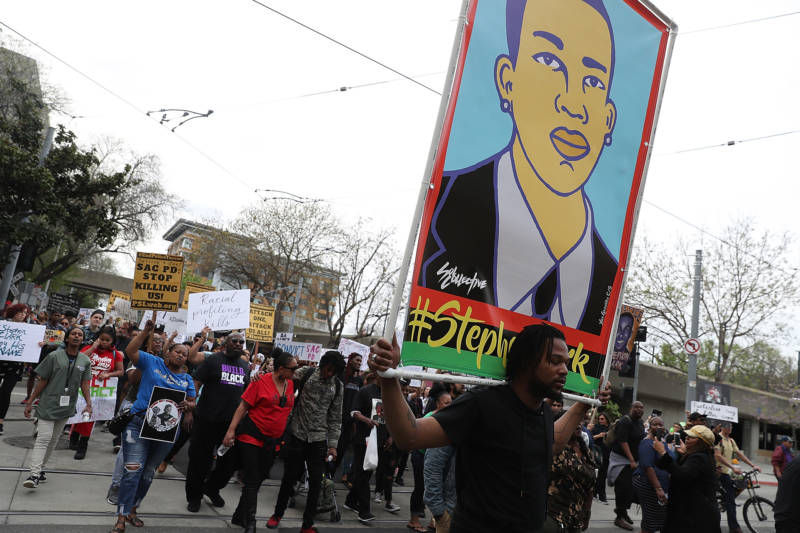SACRAMENTO — Federal authorities declined to pursue civil rights charges Thursday against Sacramento police officers who fatally shot an unarmed black man, a killing that sparked protests and spurred changes to a state law governing when authorities can use deadly force.
The U.S. Attorney's Office and the FBI said a federal review of the 2018 shooting of 22-year-old Stephon Clark found "insufficient evidence" to pursue charges against Officers Terrance Mercadal and Jared Robinet. Both will be returned to active duty.
The California Attorney General's Office in March declined to issue state criminal charges after a nearly yearlong investigation. Attorney General Xavier Becerra said then that evidence showed the officers had reason to believe their lives were in danger because he was advancing toward them holding what they thought was a gun. Investigators found only a cellphone.
Sacramento police also announced Thursday their internal investigation did not find any policy or training violations.
"Although no policy violations occurred in this incident or in the events leading up to it, we are committed to implementing strategies that may prevent similar tragedies in the future," Sacramento Police Chief Daniel Hahn said in a statement.
